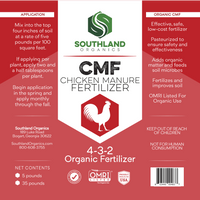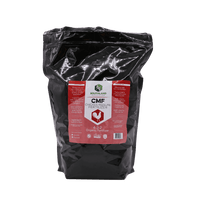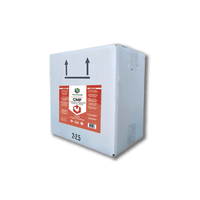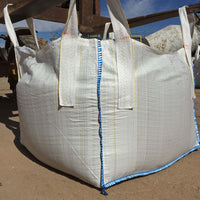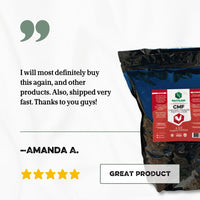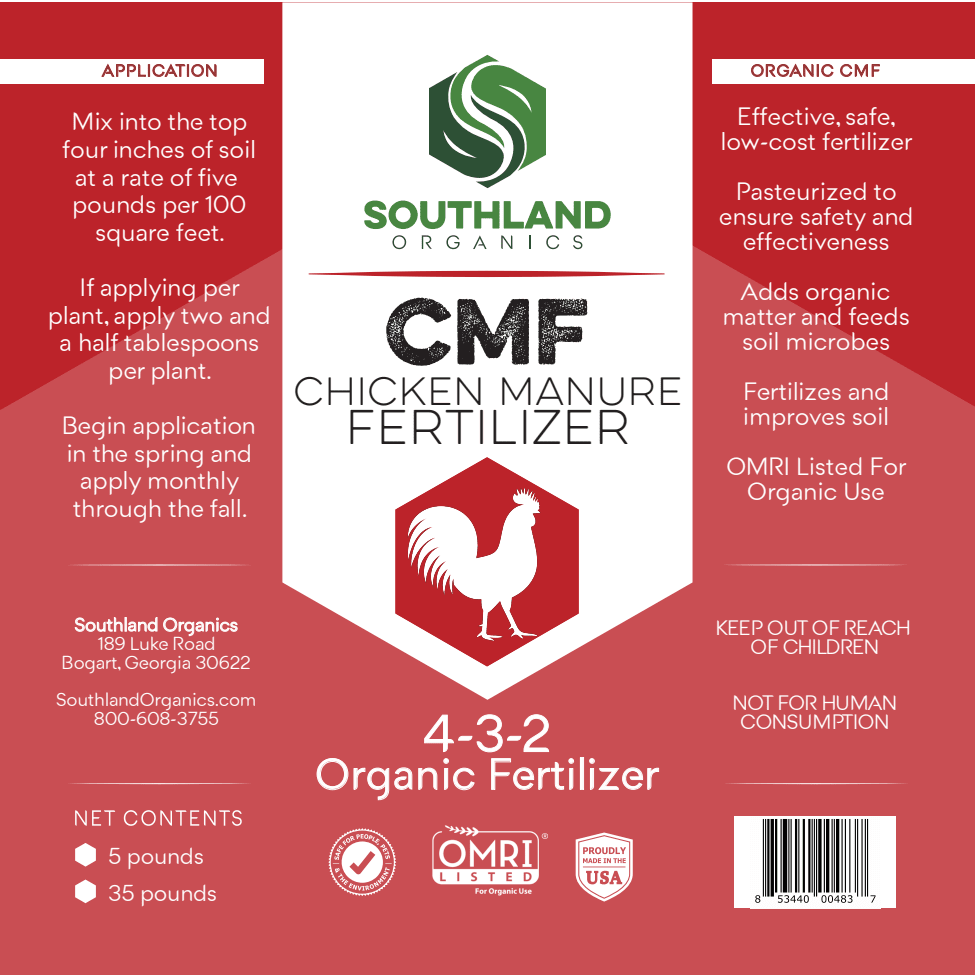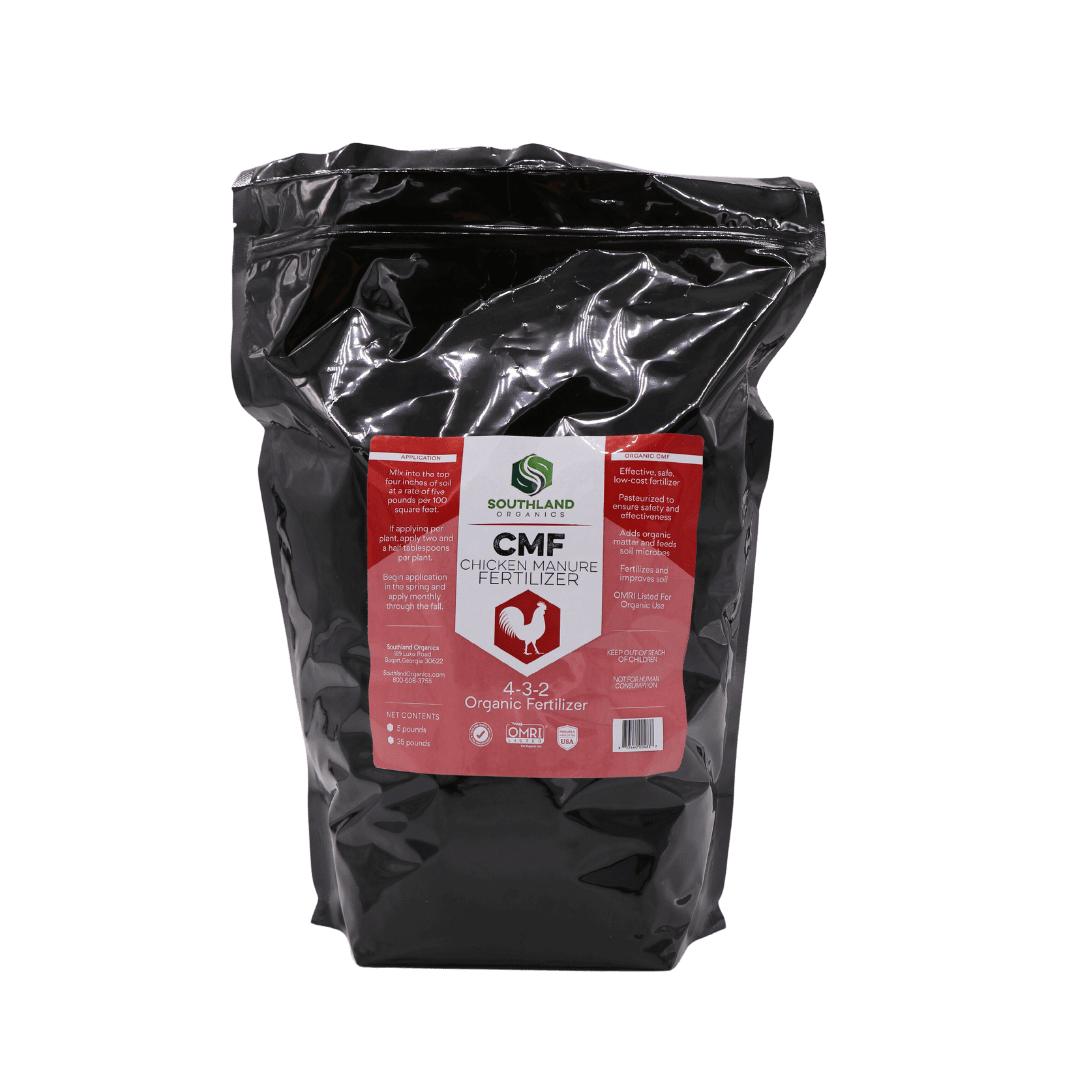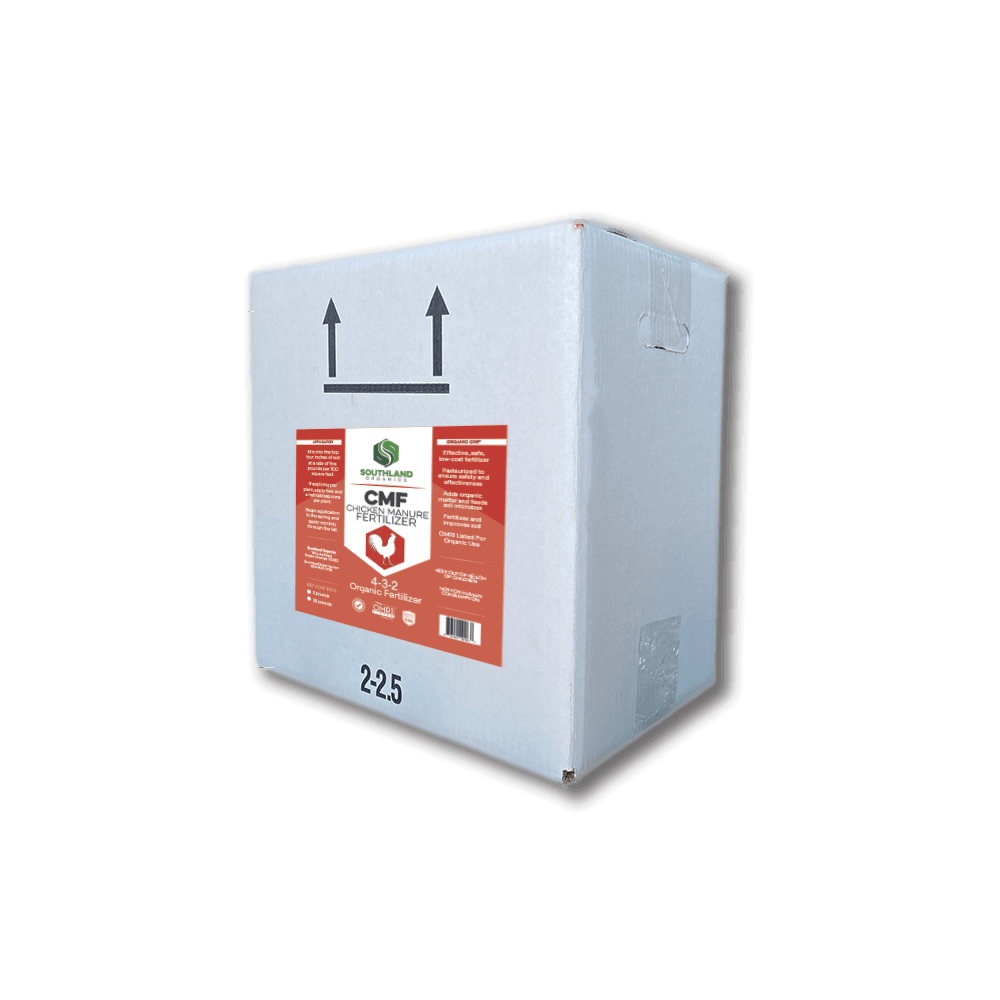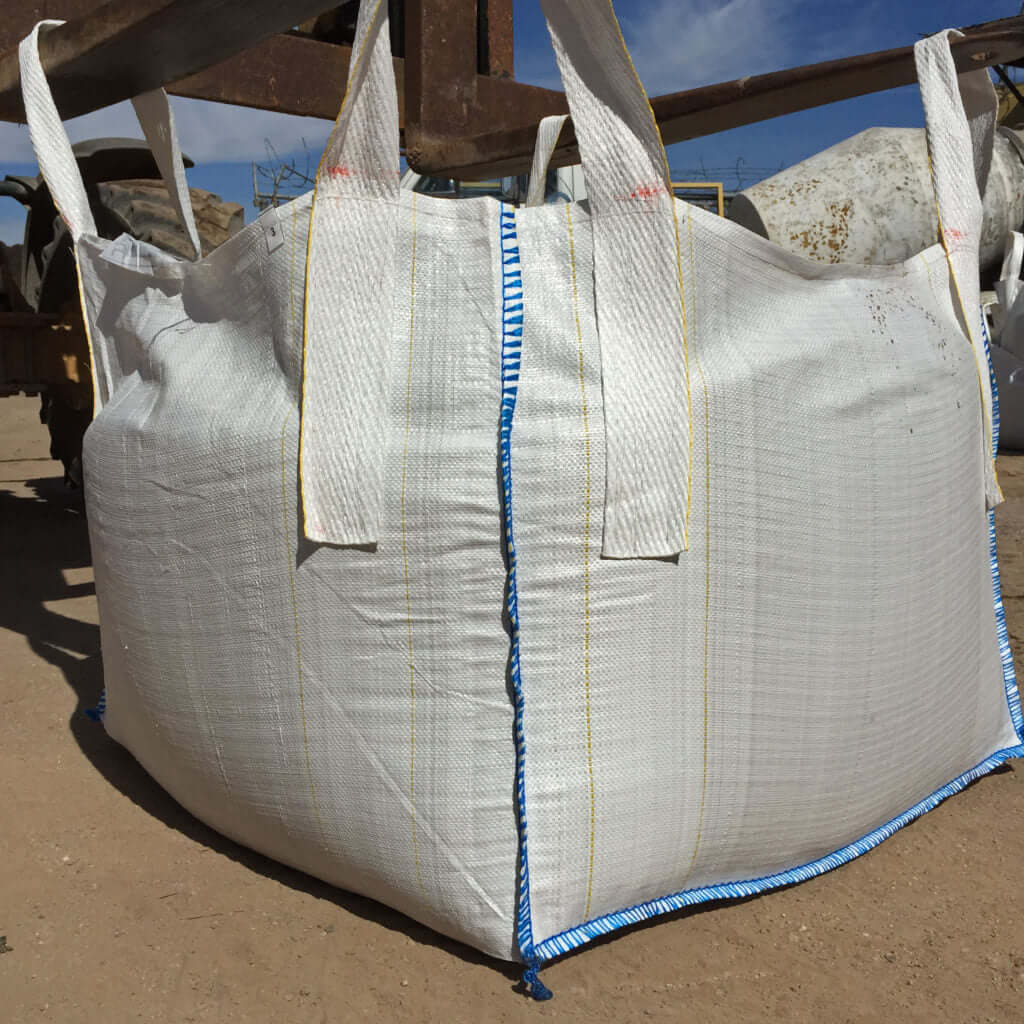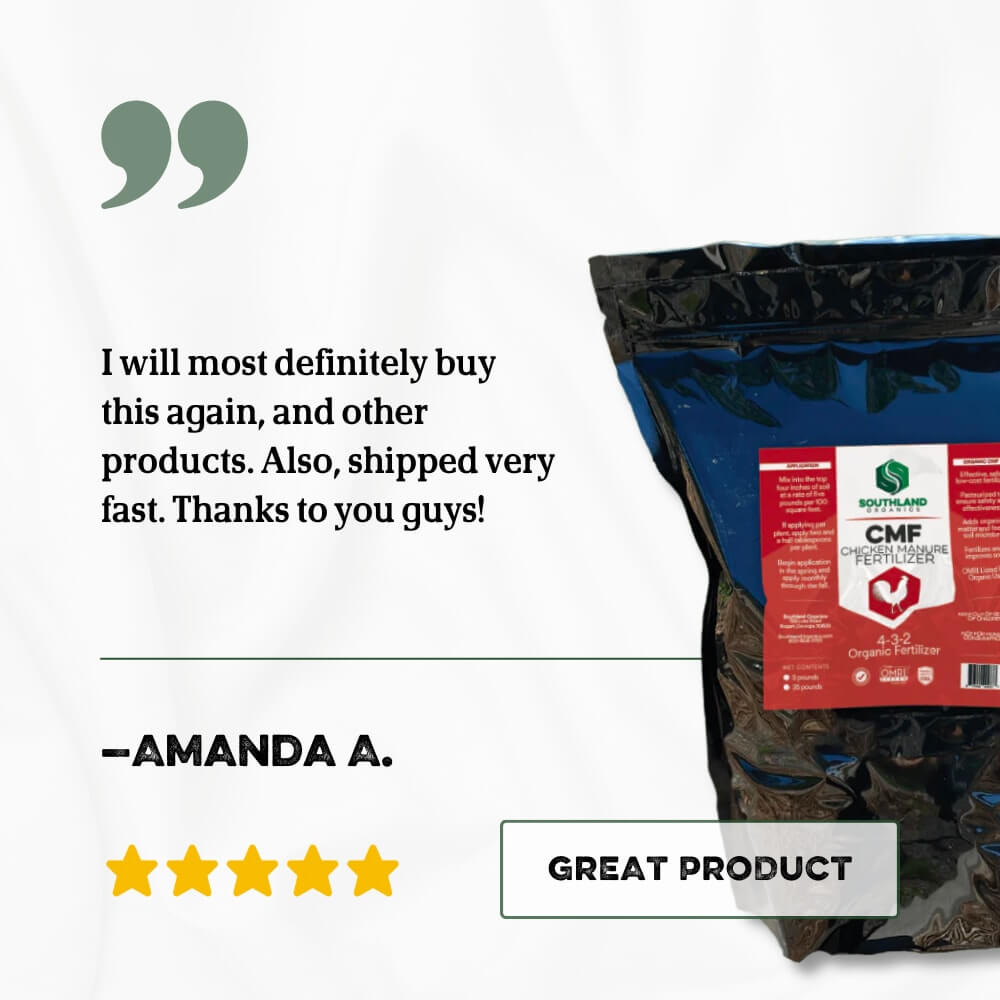Begin applying chicken manure fertilizer (CMF) in the spring. Sprinkle CMF on the soil surface as a side dressing and then water in.
CMF is not intended to be applied as a compost tea. We recommend side dressing CMF as a dry product and then applying compost tea on top as a foliar drench.
Garden Fertilizer
Mix into the top 4 inches of soil at a rate of 5 pounds of CMF per 100 square feet.
h3>Lawn FertilizerApply at a rate of 5 - 15 pounds of CMF per 1000. square feet of lawn. Sprinkle CMF on the soil surface as a side dressing and then water in.
Flowers and Vegetables
Apply at a rate of 2.5 tablespoons of CMF per plant.
Feed flowers and vegetables monthly throughout the growing season.
Trees and Shrubs
Apply 1 cup of CMF per foot of branch diameter around the drip line. Double this amount for plants larger than 3 feet in diameter.
Feed trees and shrubs in the spring and fall.
A Note On Compost Piles
While it is commonplace to apply fresh chicken manure to a compost pile, we do not recommend applying it to piles. While it certainly will not hurt, it is a waste of resources.
Fresh manure is typically applied right out of a house or chicken coop and then processed in the compost bin until it becomes aged manure. This involves some knowledge and experience, as you would need to have a properly managed operation and introduce oxygen to the compost often for five to six weeks. The end result would be a lesser product in terms of nitrogen and fertilizer than our chicken manure fertilizer.
If you have already processed a compost pile or compost bin and want to incorporate more nutrients, simply add in our chicken manure fertilizer at the end of the composting period for a more nutrient-rich compost blend. To accelerate the composting process, check our Ignition Compost Starter and Garden Rejuvenator.
Whether you have a lawn, garden or entire pasture, composted chicken manure can be used as an effective, safe, low-cost fertilizer. This is a great alternative to chemical fertilizers, which can harm your health and environment in the long run.
Benefits of Chicken Manure Fertilizer
As a complete fertilizer, chicken manure contains high levels of the primary nutrients: nitrogen, phosphorus and potassium. This non-synthetic fertilizer also contains important micronutrients for plant and grass growth, including calcium, magnesium, copper and zinc. In fact, chicken manure's nitrogen and phosphorus content is around twice the concentration of cow manure.
Chicken manure can be viewed not only as a rich fertilizer, but also as a highly beneficial soil amendment. It provides organic materials that improve soil structure, moisture retention, drain capability and air circulation. This means that in addition to fertilization, chicken manure can improve your lawn and garden soil for the long run.
Types of Chicken Manure Fertilizer
The most common types of chicken manure fertilizer are pellets and crumbles. Our chicken manure fertilizer is made of crumbles.
Pellets
Chicken manure pellets are created from composted chicken manure that is heated to disinfect and then compressed to form hard, compact pellets. Pellets are larger and heavier than crumbles and tend to go further in a broadcast spreader. They are not as versatile as crumbles, but they can be combined with other additives to make a combined product.
Crumbles
Fertilizer pellets can be cracked and rolled to form crumbles, which are smaller and softer than pellets. Chicken manure crumbles are more versatile, as they can be controlled easily with a drop spreader and provide enough distance in a broadcast spreader.
Fresh Chicken Manure vs. Composted Chicken Manure
Let's get one thing straight—it is not okay to spread uncomposted manure on your vegetable garden or lawn. Fresh chicken manure may contain disease organisms that could contaminate root crops (carrots, radishes, beets) and leaf crops (lettuce, spinach).
This means that backyard chicken keepers can't just take what's on the chicken coop floor and put it on their plants as is. If they did, they would scoop up the coop bedding material, including feathers, straw, paper and grass clippings, along with the chicken manure. The variety of components can lead to inconsistencies in the nutrient content of fresh manure.
With this homemade chicken manure fertilizer, you don't know exactly what you're putting on your plants. It's safer and more effective to use aged chicken manure rather than fresh chicken manure.
What's even better than aged manure? Chicken manure fertilizer processed in an industrial dryer! That’s what we sell at Southland Organics. Our chicken manure fertilizer is processed in an industrial dryer, where it's heated to over 350 degrees and circulated with powerful blasts of air to ensure the final product is safe and optimal. Since it's commercially produced, the nutrients are consistent, and you know exactly what you're putting on your lawn or garden. Fresh manure is just not reliable.
The industrial drying process renders the litter much better than traditional composting. The heated drying process removes weeds and pathogens while retaining the beneficial nutrients.
Traditional composting alone is not good enough. With our industrially dried chicken manure fertilizer, you can rest assured that you’re applying a safe, effective natural fertilizer to your lawn or garden.
Safety with Chicken Manure Fertilizer
Using chicken manure safely is imperative. The following safety tips are summarized from the Stewardship Gardening Program provided by Washington State University:
- Using chicken manure safely is imperative. The following safety tips are summarized from the Stewardship Gardening Program provided by Washington State University:
- Always wear gloves when handling livestock manure.
- Thoroughly wash raw vegetables before eating.
- Do not use cat, dog or pig manure in compost piles.
- People who are susceptible to food-borne illnesses should avoid eating uncooked vegetables from manured gardens. Those who face risks from food-borne illness include pregnant women, very young children and persons with cancer, kidney failure, liver disease, diabetes or AIDS.
This product is entirely chicken manure! Our chicken manure fertilizer (CMF) only includes industrially processed chicken manure.
As a complete fertilizer, CMF contains high levels of the primary nutrients—nitrogen, phosphorus and potassium—with a guaranteed analysis of 4-3-2. CMF also contains important micronutrients for plant and grass growth, including calcium, magnesium, copper and zinc.The difference between fresh or aged manure and our CMF is the processing method. We have a huge multimillion dollar dryer that heats the litter, locks in all vital nutrients and eliminates all pathogens. Because the manure has been processed, it is considered compost.
